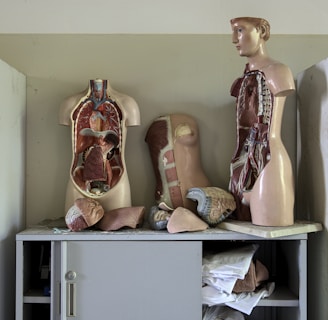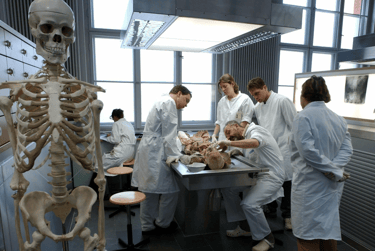The Reality of Donating Your Body to Science
Discover the intricate process and important considerations involved in donating your body to science, from registration to the varying regulations across different countries.
8/10/20242 min read


The Reality of Donating Your Body to Science
When considering what happens to your body after death, donating it to science is a common choice for many. It's a noble decision, but it’s not as straightforward as it might seem. Many people don't realize the complexities involved, from registration to the specific terms and conditions that can vary widely depending on where you live.
What Does Donating Your Body to Science Mean?
Donating your body to science involves giving your entire body to a licensed institute, typically a university, for anatomical teaching, medical research, and specialist training. In Australia, for example, these institutes are licensed by the health department, and bodies can be retained for periods ranging from six months to five years, depending on their use.
Where Do I Register?
Unlike organ donation, there isn't a central registry for body donation. You must register individually with each university program you might want to donate your body to. This varies depending on your location, and in some areas, like the Northern Territory in Australia, there may be no options available at all. Each university's program will have slightly different terms and conditions, making it important to read the fine print.
Terms and Conditions
Registration is a crucial step, and it’s important to inform your family and doctors about your decision. The process is time-sensitive, and if you’re not close to a facility, you might need to arrange and pay for the transportation of your body. Additionally, there are strict criteria that must be met for a body to be accepted, including factors like recent surgeries, organ donations, and the condition of the body at the time of death. Even if you’ve registered, your body may still be declined if it doesn’t meet the necessary criteria, so it’s wise to have a backup plan.
What Happens After Science?
After your body has served its purpose for medical research or teaching, the institution will follow the instructions you provided upon registration. This may include returning your cremated remains to your next of kin or having them interred in a dedicated plot. In Australia, many universities offer a garden plot at a local cemetery where your remains can be placed, with the option of including your name on a memorial plaque.
International Differences
In Germany, body donation is also highly regulated, with a strong emphasis on respecting the wishes of the deceased. In contrast, India allows for body donation even without pre-registration, though this can lead to ethical concerns. The USA, however, has a less regulated approach, leading to the existence of ‘body brokers’ who profit from the sale of donated bodies, often without the donor's or family's full understanding of what the body will be used for.
Watch Our Video For More Information
Conclusion
Donating your body to science is a generous act that can greatly benefit medical education and research. However, it’s essential to understand the process, the potential challenges, and the regulations that may affect your donation. In Australia, the process is tightly regulated, ensuring that your donation will be used appropriately. If you’re considering this option, it’s important to act now and make your wishes clear to your loved ones.
If you have any questions or need to discuss this decision further, feel free to book an online consultation through our website.



